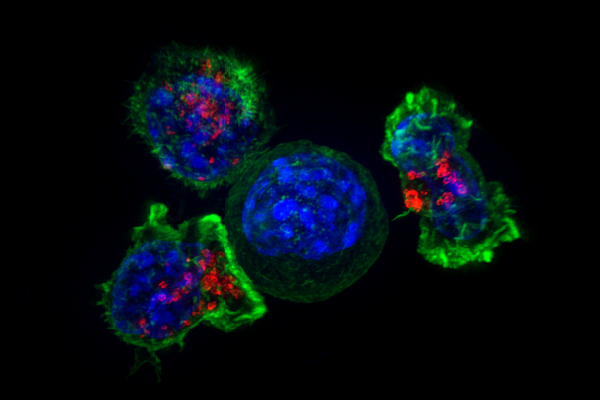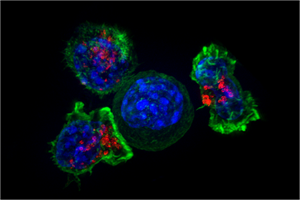
Sanger researchers have created the world’s largest novel resource using systematic drug testing and genetics analyses to show new potential drug combinations for breast, colon, and pancreatic cancer.
New analysis has highlighted multiple drug combinations that could be effective therapies for some types of hard-to-treat cancers.
The research, from the Wellcome Sanger Institute and collaborators, tested combinations of cancer drugs that are already used to treat patients. Scientists then created the world’s largest resource that shows possible effective combinations for further study.
The paper, published today (23 February 2022) in Nature, also linked biomarkers that could be used to identify patients that would benefit from the newly highlighted combinations to ensure that they are used in the most effective way.
This freely available resource starts to define how combinations of cancer drugs in specific molecular backgrounds work together, with the aims of avoiding resistance, minimizing toxic side effects, and finding new treatments for some of the hardest to treat cancers.
The researchers hope that other scientists can use this resource to aid the future clinical development of combination therapies. This study expands the Cancer Dependency Map, which aims to systematically identify vulnerabilities in cancer cells to drive forward development of new treatments.1
Combinations of drugs are used to treat a variety of different diseases, including HIV and some types of cancer. There are hundreds of thousands of possible drug combinations and we don’t know which ones will be effective. Testing all of these in patients is neither ethical nor practical until there is more evidence identifying either their effectiveness, or the patient groups that would benefit the most. In addition to this, our ability to predict effective drug combinations in different tissue types and molecular backgrounds of cancer is limited.
In this new publication, from the Wellcome Sanger Institute and collaborators, researchers focused on analyzing already clinically relevant drugs.2 By using systematic testing of drug combinations combined with analysis of genetic information and multi-omics techniques3 on cell lines, researchers have created a new resource to predict effective treatment combinations. They can also use the molecular information to identify biomarkers that could pinpoint patient groups that would benefit from the treatment combinations.
To demonstrate that their analysis is effective in a real world application, the researchers verified a drug combination in mice using colon cancer cells with a specific double mutation. This combined a drug already used for colon cancer with another one that is in clinical development. The combination halted tumor growth in mice, showing the benefit of combining drugs that are in clinical development with existing chemotherapies.
Many drugs are safe but do not show clinical efficacy on their own. This analysis can help show how these drugs could be combined to have a greater efficacy and which group of patients would potentially benefit, accelerating the development of new therapies.
“Being able to identify specific effective combinations of drugs that work together against cancer cells can catalyze the development of new therapies. This helps to ensure that those living with cancer, especially hard to treat or resistant cancers, have new treatment options when they need them,” says Dr. Patricia Jaaks, co-first author and previously Staff Scientist at the Wellcome Sanger Institute.
“This open resource uses in-depth genetic analysis to help understand which drugs work best together and to identify patients who could benefit the most. In addition to the combinations that we discovered, this research uses the largest number of cells lines to date in this type of study, enabling future studies to uncover more possible combinations,” says Dr. Elizabeth Coker,
co-first author and former postdoctoral fellow at the Wellcome Sanger Institute, now based at Healx.
Source: Read Full Article
